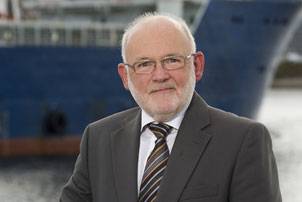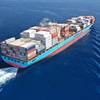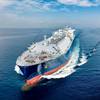Decom North Sea Helps Supply Chain Companies
An industry body set up to ensure businesses are ready to secure opportunities from decommissioning work over the coming years will shortly launch a major mapping exercise to help the supply chain benefit from the $38.6b to $46.3b of North Sea work forecast for the future.
The work by Decom North Sea will help promote the capability and capacity of the North Sea supply chain for decommissioning projects, as well as showcasing supply chain companies and their individual expertise and experience.
Decom North Sea chief executive Brian Nixon gave details of the project at the major Offshore North Sea (ONS) oil & gas industry exhibition in Stavanger.
DNS is attending ONS to attract new members as well as meeting some of the key decommissioning players from Norway to learn of their plans and how the UK supply chain can work with them. He said revealing details of the exercise in Norway underlined the fact industry needed to take a pan-North Sea approach to securing decommissioning projects.
He said visitors to the Decom North Sea website would soon be able to quickly and easily identify capability in three areas - the phase of decommissioning, the kind of facilities or infrastructure to be removed, and the specific service and / or technology required.
Nixon said providing this level of comprehensive information would help operators find suppliers and contractors with greater ease and provide the supply chain with a highly practical way of accessing opportunities and showcasing their respective decommissioning skills.
He added that decommissioning work was forecast to ramp up within the next year or two and, in advance of this intensive period of activity across multiple, complex projects, the industry (operating companies, major contractors, service specialists, technology developers, legal and financial experts, consultants etc.) must work together to learn from, and share, the various experiences that will be earned from the next clutch of decommissioning projects.
“To ensure a vibrant and sustainable capability, the industry needs to evolve innovative contracting models, able to stimulate progressive improvements and efficiency gains. A cohesive approach is needed to ensure effective management and mitigation of the various risks – safety; environment; cost; reputation; technical etc. New compensation strategies are also required to provide equitable management of risk and reward, and reasonable returns on investment for operators and contractors alike,’’ said Nixon.
As a result, he announced that Decom North Sea has commissioned independent research and analysis of alternative management and contracting models. A research team from Aberdeen’s Robert Gordon University is consulting a wide range of senior industry officials before analysing and prioritising their findings.
The results of this research and analysis will be discussed and debated at the Decom North Sea / Oil & Gas UK Decommissioning Conference in October. It is hoped that some innovative and progressive options can be identified by this initiative, and that the industry can be encouraged to take them forward for possible adoption in the future decommissioning programme.
Nixon said: “There is an expectation that the supply chain will respond with innovation and investment in readiness for the expected uplift in decommissioning activity. If it were possible for supply chain companies and contractors to spread any such investment over more than one project, it is likely that a better business case would result. So the concept of packaging or clustering, individual decommissioning projects into larger programmes is being pursued as it offers potential benefits to all parties. This needs further research and promotion, and so it is hoped that some scenario planning will illustrate the benefits of such an approach.
“And of course it is vitally important that the industry and supply chain is prepared to secure maximum benefit from the wider North Sea programmes, and by doing so becomes recognised globally as a source of decommissioning expertise, in the same way as it is recognised for its strengths with new developments, production optimisation, subsea technologies, asset integrity and similar.
“If the issues highlighted here can be addressed in a collaborative manner, the supply chain can look forward to an additional and sustained business opportunity from decommissioning. However if they are not addressed, there is real concern that the industry could lose out on the economic benefit that will accompany these significant expenditures.’’











